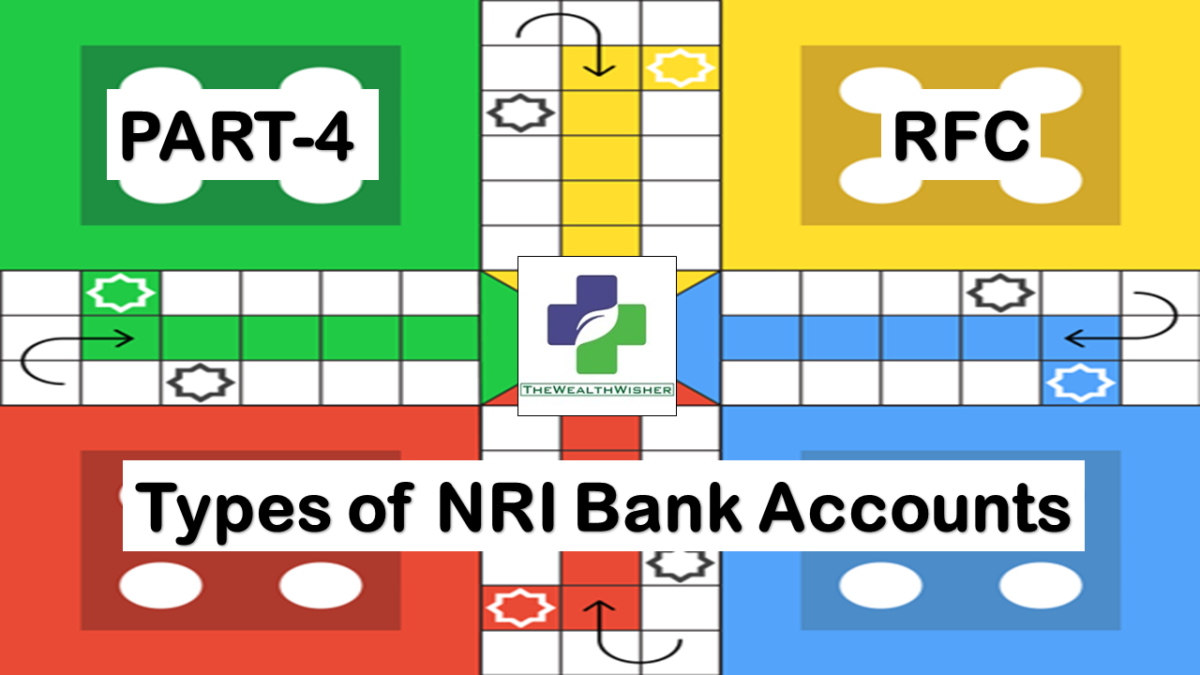A resident or resident, not ordinary resident (RNOR) may require, y keep foreign currency accounts as they may have still business unfinished after their return to India. These can be done using RFC Account for NRI. Here are the details.
This is Part 4 of series of 4 updated articles to update you on the Types of NRI Bank Accounts. We will discuss here the RFC Account for NRI.
We are giving you complete details of NRI related bank accounts. These are:
NRO Account (Click for Details)
NRE Account (Click for Details)
FCNR Account (Click For Details)
RFC Accounts for NRI (Current Article)
You will find complete details, prevailing interest rates, features, requirements, purpose, allowed credits & other datils of these NRI accounts in the above-mentioned articles.
Let us start with:
RFC or Resident Foreign Currency Account
When you have returned to India with the intention of staying in India for a longer period, you can only maintain a RFC account. This is to help you transition in your NR status. For three years you can maintain RFC accounts.
The interest from RFC account are exempt till the year your residential status is non-resident or RNOR under the provisions of the IT Act.
If you become an ordinary resident, the interest will be added in your taxable income.
You can hold the FCNR deposits till maturity, however, those will be converted to resident deposits and the taxability of interest on these deposits shall have the same treatment as RFC account.
A person resident in India may open, hold and maintain with an authorized dealer in India a Resident Foreign Currency (RFC) Account. Proceeds of assets held outside India at the time of return can be credited to RFC account.
The funds in RFC accounts for NRI are free from all restrictions regarding the utilization of foreign currency balances including any restriction on investment in any form outside India.
RFC accounts can be maintained in the form of current or savings or term deposit accounts, where the account holder is an individual and in the form of current or term deposits in all other cases.
RFC accounts are permitted to be held jointly with the resident close relative(s) as defined in the Companies Act, 1956 as joint holder (s) in their RFC bank account on a ‘former or survivor basis’. However, such resident Indian close relative, now being made eligible to become a joint account holder shall not be eligible to operate the account during the lifetime of the resident account holder.
Benefits fo RFC Account
RFC Accounts help you transition from NR to Resident & vice versa in case you again need to acquire NR status.
They help in keeping the taxability of funds earned outside India tax-free when a person has returned to India.
As you can not maintain NRE account after returning back, you need to transfer funds either to resident account or to RFC – Resident Foreign Currency account.
There is no tax on RFC account as long as your residential status is “Not Ordinary Resident”. The interest in the resident accounts would be taxable.
Funds in RFC can be credited to NRE again on becoming NRI. While there may be some restrictions for transferring funds from resident/NRO to NRE in future but this is possible.








